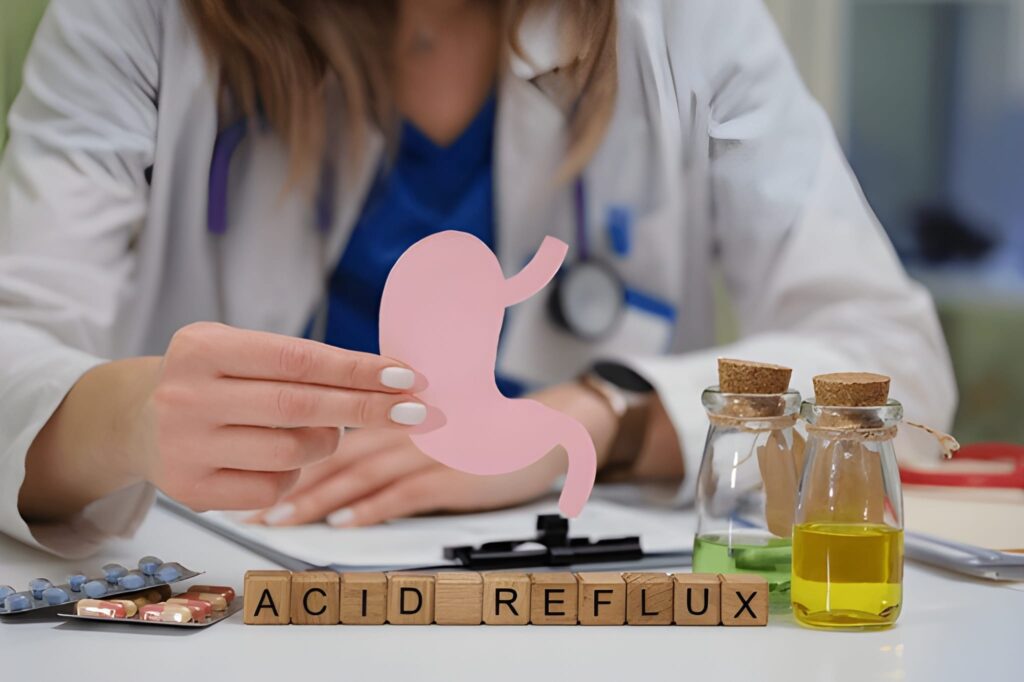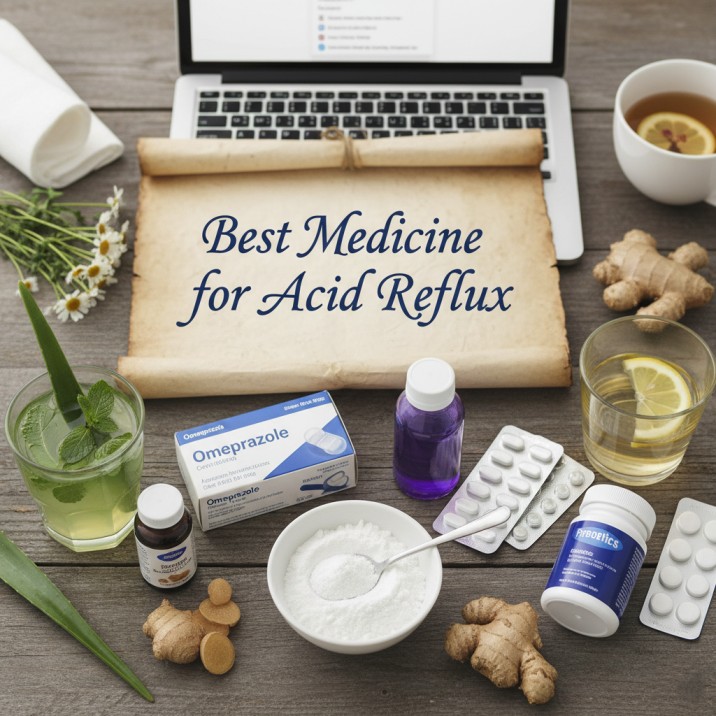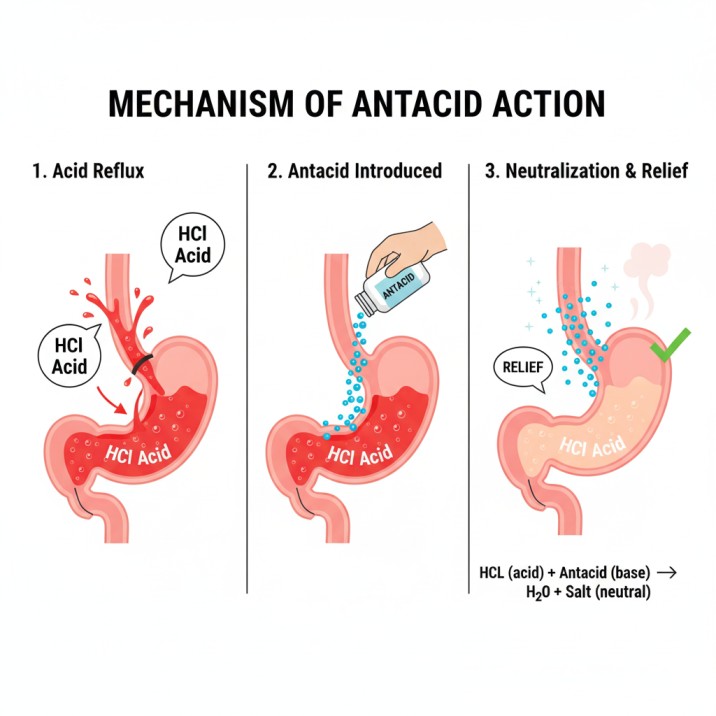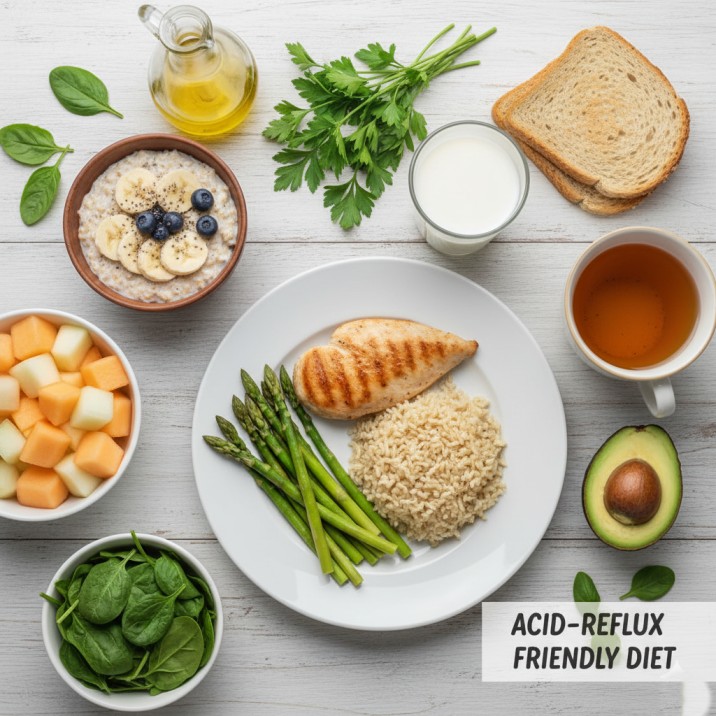Best Medicine for Acid Reflux: An Expert’s Guide to Lasting Relief

That burning sensation creeping up your chest after a meal, the sour taste in your mouth, the nagging cough that just won’t quit—acid reflux is more than just an inconvenience. It’s a daily disruption that can affect your meals, your sleep, and your overall quality of life. If you’re tired of navigating the pharmacy aisle alone, wondering which acid reflux medicine is right for you, you’ve come to the right place.
This guide is designed to give you clarity and confidence. We’ll explore everything from fast-acting over-the-counter acid reflux medicine to more advanced prescription treatments. More importantly, we’ll do it with the guidance of a leading expert in the field.
Meet Your Expert: Dr. Samir Rahmani
Before we dive in, it’s crucial to know your information is coming from a trusted source, especially when it concerns your health. This guide is presented from the perspective of Dr. Samir Rahmani (Dip, MSc, MD, FRCS (Eng)), a reputable UK-trained Consultant Upper GI, Laparoscopic, and General Surgeon.
Dr. Rahmani is a pioneer in innovative, minimally invasive techniques for treating a wide range of conditions, including those linked to acid reflux and GERD. His specialisation in weight-related issues such as diabetes, high blood pressure, and sleep apnea gives him a unique, holistic understanding of the factors that contribute to digestive health. With his extensive experience, Dr. Rahmani is dedicated to providing patients with effective, long-term solutions, ensuring the advice you find here is both credible and trustworthy.
Now, let’s find the relief you deserve.

What Is Acid Reflux and Why Does It Happen?
At the bottom of your esophagus (the tube that carries food from your mouth to your stomach), there’s a muscular ring called the lower esophageal sphincter (LES). Think of it as a one-way valve. It opens to let food into your stomach and then promptly shuts to keep stomach acid where it belongs.
Acid reflux occurs when this valve weakens or relaxes at the wrong time, allowing harsh stomach acid to flow back up into the esophagus. This acid backup is what causes the classic symptom of heartburn that painful, burning feeling in your chest.
When acid reflux happens frequently (typically more than twice a week), it may be diagnosed as Gastroesophageal Reflux Disease (GERD). Over time, the constant exposure to acid can damage the esophageal lining, leading to more serious complications. This is why finding the right medicine for GERD is so important.
The First Line of Defense: Over-the-Counter (OTC) Options
For occasional acid reflux, the pharmacy shelves offer a wealth of effective solutions. These over-the-counter stomach medicine options are generally safe for short-term use and can provide rapid relief. They fall into three main categories.
1. Antacids: For Immediate, On-the-Spot Relief
If you need the best heartburn relief fast, an antacid is your go-to solution. They work by chemically neutralizing the acid in your stomach, offering immediate relief. Perfect for sudden, infrequent heartburn, common antacid drugs include Tums, Rolaids, and Gaviscon. Gaviscon is particularly noteworthy as it also creates a foam barrier that sits on top of stomach contents to prevent reflux, making it a powerful acid reflux antacid.
2. H2 Blockers: For Planned Prevention
If you know you’re about to eat a meal that typically triggers your heartburn, H2 blockers are a great preventative. They work by reducing the amount of acid your stomach produces. They don’t work as quickly as antacids but provide longer-lasting relief (up to 12 hours). Common examples are Famotidine (Pepcid AC) and Cimetidine (Tagamet HB). These popular acid reducer pills are a step up from antacids for planned relief.
3. Proton Pump Inhibitors (PPIs): For Frequent, Bothersome Heartburn
If you experience heartburn more than two days a week, over-the-counter PPIs may be the most effective solution. They are the strongest class of acid-reducing medication available OTC, providing powerful, 24-hour relief by blocking the “pumps” that produce acid. Common examples include Omeprazole (Prilosec OTC) and Esomeprazole (Nexium 24HR). Many consider PPIs the best acid reflux medicine available without a prescription and the cornerstone of over the counter GERD medicine.
When OTC Isn't Enough: Prescription Acid Reflux Medication
While OTC options are excellent for many, they aren’t always the answer. It’s time to consult a doctor, like Dr. Samir Rahmani, if your symptoms persist, require frequent medication, or are accompanied by alarming signs like difficulty swallowing or unexplained weight loss. A specialist can provide an accurate diagnosis and prescribe a more powerful or targeted acid reflux medication. These often include prescription-strength PPIs or H2 blockers, which are more effective at healing an inflamed esophagus.

A Closer Look at Medications: Side Effects and Long-Term Use
While modern acid reflux medication is generally safe and highly effective, it’s important to be aware of the considerations for long-term use, which should always be managed by a doctor.
- Proton Pump Inhibitors (PPIs): As the strongest medicine for acid, PPIs are highly effective. However, long-term use has been associated with certain risks. Because they significantly reduce stomach acid, they can interfere with the absorption of essential nutrients like Vitamin B12, calcium, and magnesium. This has led to concerns about an increased risk of bone fractures and, in rare cases, kidney problems. These risks are why it’s crucial to use the lowest effective dose for the shortest necessary period under medical supervision.
- H2 Blockers: Generally considered to have fewer long-term side effects than PPIs, H2 blockers are a very safe option for many. Side effects are uncommon but can include headache, dizziness, or diarrhea.
- Antacids: When used occasionally, antacids are very safe. However, overusing them can lead to electrolyte imbalances or issues like constipation or diarrhea, depending on whether they contain aluminum or magnesium.
Dr. Rahmani’s Advice: “The goal of medication is to control symptoms and allow the esophagus to heal. Once that’s achieved, we work with patients to taper off or find the minimum dose required. The conversation about the safest acid reflux medication for you is a personal one, balancing the benefits of symptom control against any potential long-term risks.”
Dr. Samir Rahmani on a Holistic Approach to Treatment
Medication is a powerful tool, but it’s only one piece of the puzzle. Dr. Rahmani emphasizes a comprehensive approach that combines the right acid reflux meds with sustainable lifestyle changes.
A Word from Dr. Samir Rahmani:
“While we have excellent acid reflux tablets at our disposal, the ultimate goal is to restore the body’s natural balance. This often involves dietary adjustments, weight management, and changes in eating habits. In cases where chronic GERD is severe or linked to anatomical issues, we may discuss minimally invasive surgical procedures. A laparoscopic fundoplication can permanently strengthen the barrier between the stomach and esophagus, offering a definitive solution.”
The Diet-Reflux Connection: Foods That Heal and Foods That Harm
What you eat plays a monumental role in managing acid reflux. Integrating soothing foods while avoiding triggers can significantly reduce your reliance on medication.
What you eat plays a monumental role in managing acid reflux. Integrating soothing foods while avoiding triggers can significantly reduce your reliance on medication.
Soothing Foods for an Acidic Stomach:
- High-Fiber Foods: Oatmeal, whole grains, and brown rice absorb stomach acid and add bulk, which can reduce reflux symptoms.
- Alkaline Foods: These foods have a higher pH and can help offset strong stomach acid. Think bananas, melons, cauliflower, and nuts.
- Watery Foods: Foods with high water content can dilute and weaken stomach acid. Include celery, cucumber, lettuce, and watermelon in your diet.
- Ginger: Known for its anti-inflammatory properties, a small amount of ginger tea can help calm the stomach.
- Lean Proteins: Low-fat sources of protein like grilled chicken, turkey, and fish are less likely to trigger reflux than fatty meats.

Common Trigger Foods to Approach with Caution:
- High-Fat Foods: Fried foods, fatty cuts of meat, and full-fat dairy can cause the LES to relax and delay stomach emptying.
- Acidic Fruits and Vegetables: Tomatoes, citrus fruits (oranges, lemons), and pineapple are highly acidic and can worsen symptoms.
- Spicy Foods: Hot spices can directly irritate the esophagus.
- Chocolate, Caffeine, and Carbonated Drinks: These are all known to relax the LES, making it easier for acid to splash back up.
- Onions and Garlic: While healthy, these can be significant triggers for many individuals with reflux.
Acid Reflux in Special Populations
Certain groups are more susceptible to acid reflux and require tailored management strategies.
- During Pregnancy: Heartburn is incredibly common during pregnancy due to hormonal changes that relax the LES and the physical pressure the growing uterus puts on the stomach. Management often starts with lifestyle changes. If medication is needed, antacids containing calcium carbonate (like Tums) are generally considered safe. However, any medicine for acidity during pregnancy should be discussed with an obstetrician first.
- In Older Adults: Seniors may experience more severe symptoms or complications from GERD. They are also more likely to be on other medications that can worsen reflux (e.g., certain blood pressure medications or NSAIDs). Furthermore, the long-term side effects of PPIs, such as bone density loss, are a more significant concern in this age group. Treatment must be carefully managed by a doctor to avoid drug interactions and minimize risks.
Frequently Asked Questions (FAQs)
For the fastest possible relief, chewable or liquid antacids are your best option. They begin neutralizing stomach acid on contact, often providing relief within minutes.
While OTC PPIs are intended for a 14-day course, a doctor may prescribe them for long-term daily use to manage chronic GERD. This must be done under medical supervision.
An antacid (like Tums) neutralizes existing stomach acid for fast, short-term relief. An H2 blocker (like Pepcid) works more slowly by reducing your stomach’s production of acid.
Look for a combination product that contains both an antacid and simethicone (an anti-gas agent). This is often the best tablet for acidity and gas.
For frequent heartburn associated with GERD, the most effective otc gerd meds are Proton Pump Inhibitors (PPIs) like Prilosec OTC or Nexium 24HR.
You should see a doctor if your symptoms are severe, persist despite using OTC medication, or if you experience warning signs like difficulty swallowing or unintentional weight loss.
Your Path to Relief Starts Today
Navigating the world of acid reflux medicine can feel overwhelming, but it doesn’t have to be. By starting with the right level of treatment and combining it with smart lifestyle choices, you can take back control.
Don’t let acid reflux dictate your life. If you’re struggling to find relief, consider a consultation with a specialist like Dr. Samir Rahmani. A comprehensive evaluation is the first step toward a personalized treatment plan and a future free from the burn.

